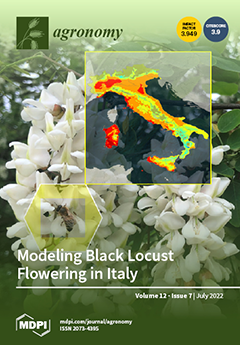Rice-based systems have recently been recognized as the most critical plant source of C emissions worldwide. Globally, rice production is highest in Asia. Actions to introduce sustainable intensification practices into existing rice lands or diversifying with lower C-emitting crops such as potatoes will be crucial to mitigate climate change. The objective of this study is to analyze the effect of potato cultivation under zero/minimum-tillage and/or organic mulching (with emphasis on rice-straw) (PZTM) on key performance indicators that are crucial to achieving agronomic gains in Asia. Forty-nine studies were selected and systematically reviewed to address the study objective. Studies reveal a consensus of increase in yield, profitability, nutrient-use efficiency, and water productivity, promoted by the significant soil moisture conservation in PZTM. There is inconsistent evidence that zero-tillage benefits weed control, but its effectiveness is enhanced by mulching. Even if soil organic matter is increased (+13–33%) and zero-tillage is the main factor driving the reduction in C footprint, no values of kg CO2 eqha−1 have been reported in PZTM to date. Only a small fraction (∼2%) of the rice-cultivated areas (RCA) is intensified with potato cultivation. That way, scaling-up PZTM among rice farmers has large potential (∼24% RCA) to increase the sustainable intensification of rice-based systems in Asia.
Potato Zero-Tillage and Mulching Is Promising in Achieving Agronomic Gain in Asia
Citation: Ramírez, D. A.; Silva-Díaz, C.; Ninanya, J.; Carbajal, M.; Rinza, J.; Kakraliya, S.; Gatto, M.; Kreuze, J. 2022. Potato Zero-Tillage and Mulching Is Promising in Achieving Agronomic Gain in Asia. Agronomy, 12(7), 1494. ISSN: 2073-4395.
2023-03-22
POTATO AGRI-FOOD SYSTEMS, POTATOES
ASIA
journal_article

